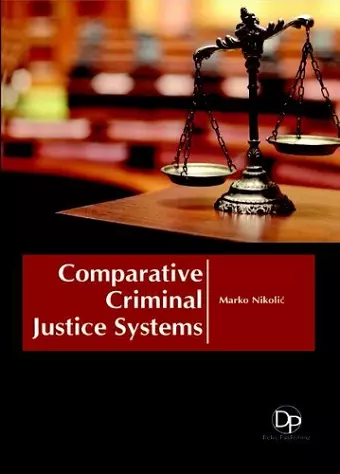Comparative Criminal Justice Systems
Format:Hardback
Publisher:Delve Publishing
Published:30th Nov '16
Should be back in stock very soon

Comparative Criminal Justice investigates and evaluates a national system of justice in terms of other countries and cultures. Several authors pointed to the lack of serious recent work on comparative methodology. Many researchers therefore avoid comparative research. Therefore, the initial part deals with new and fresh approach that avoids the risk t? b? drowned in theoretical discussions, this Chapter is offering practical solution. The so-called `SPOCs & survey’-method consists of nominating a SPOC (short for a single point of contact) for the countries to be included in the comparative analysis and asking them to fill out a multiple choice based survey, complemented with free text fields and the option to request documents to be attached. The question arises which evidence should be used to support policy decisions. Criminal policy making is not solely based on evidence related to national experiences. The problems that the researcher encounters are language barriers, limited accessibility of up to date information and the risk of misinterpreting information due to an inadequate understanding of the specificities of the foreign criminal justice system.
Comparative Criminal Justice takes a descriptive, historical, or political approach. The functions of a criminal justice system are broadly categorized into policing, adjudication and corrections. Comparativists are trying to find the best solutions by observing international practice through space and time. They research solutions taken in other systems, searching for the best options for domestic law to evolve. In other words, they are trying to find out the causes and reasons of why some solutions are working in one environment and not in other. Interaction of national systems always lead to progress, which can be seen from the examples of Judgment of the European Court of Human Rights in the second, third and fourth Chapter, which is increasingly gaining in importance. But the countries does not need a supranational authority so that they would accept acknowledged, positive solutions from other countries. Perception of others will always be colored to some extent by our own cultural starting points – even when the researcher says that he is trying to learn the good examples. The field of comparative science is incredibly wide. One of the reasons is the fact that Comparative Criminal Law is trying to enable us to avoid...
ISBN: 9781680957815
Dimensions: unknown
Weight: unknown
190 pages